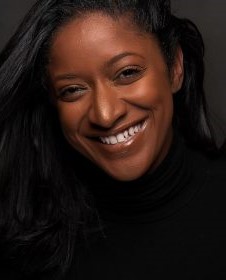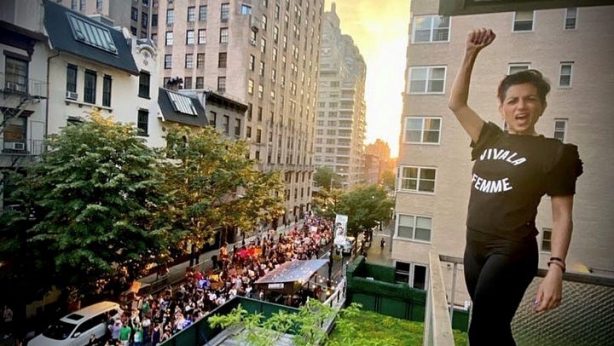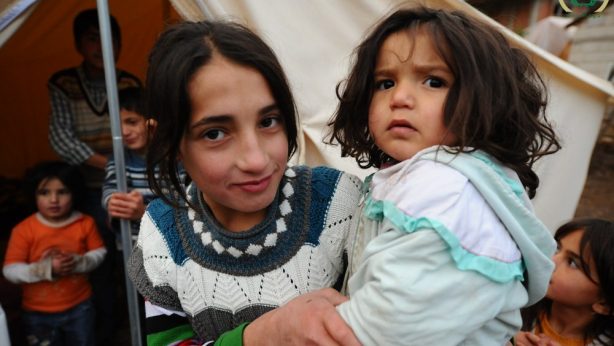Elianne Andam’s Murder & These Responses Reveal A Lot About Misogyny Today
Last month, fifteen-year-old Black British girl Elianne Andam was brutally killed in broad daylight on the way to school in Croydon, South London, by her ex-boyfriend. They had recently broken up and she was returning a bag of his items. However, a row broke out, following her to attempt to leave, only for him to chase and then fatally stab her at a bus stop.
Elianne is said to have leapt to her friend’s defence after the attacker pulled out a foot-long machete in response to Elianne’s rejection of some flowers he had brought her. Her family rushed to the scene, but Elianne died 50 minutes after the 8.30am stabbing.
As though the horror of this event wasn’t enough, the backlash against the victim (yes, the victim, not the murderer…) and the ongoing misogynoir and violence against Black women that it echoes are even more disturbing.
The Response
Twitter/X user @JewishAfrikan (their account is currently suspended) responded to a tweet about the incident by @skinnylilbih by saying:
“Why didn’t she just give him her number? If men are supposedly so dangerous then she [sic] why didn’t she just comply?
Who says no to a guy with a knife.. [sic] She played stupid games and won stupid prizes.”
This was backed up by similar tweets laughing at the notion that this incident is rooted in misogyny, to simply downplaying it, saying that “men get attacked too.”
It goes without saying that it is not only abhorrent but illogical to insinuate that, under any circumstance, it is the victim’s fault. But, in this case it’s expected, as the victim of this sexual assault and murder is a Black woman,
And so, the many misogynists of the world jump to the conclusion that it’s on the women to comply. To give any man that threatens her, or indeed, any man, whatever he wants.
Unless of course she gets raped, then by complying she also deserved it, according to their logic…
Essentially, the messages we are receiving are:
Do whatever men want, especially if they threaten you.
Don’t do whatever men want, even if they threaten you.
As a consequence, rather than call this senseless murder out for what it is, there are those who believe that the victim could have done better to avoid this outcome, instead of focusing on the murderer’s own unforgivable actions.
For example, Twitter user @AbujaNaijaBoy added to the tweet above:
“She deserved it for rejecting him off looks alone. Could´ve at least gave [sic] the guy a date and then rejected him smh.”
Not that there is any basis to this claim, or it even matters, but the notion that anyone deserves to be brutally murdered for rejecting another person, regardless of reason is, again, deplorable.
Is there ever a scenario when women owe men their time, attention, or bodies? Or that any backlash they receive for not handing any of these over, is justified?
And then there was the reply from user @IhsanulHasan:
‘Whenever something tragic happens’
Twitter: Blame Men”
Ah, yes. Because it is, of course, illogical to blame the man who stabbed someone for… stabbing someone…
Misogyny, Misogynoir, & Adultification Bias
Elianne had hopes and dreams about her future just a few weeks ago, and now her life has been cut short because of a bruised male ego. That being said, this is part of a much wider problem that spans countries and cultures.
Around the world and across age groups, so many men still blame women for merely exercising their human right to freedom of choice and bodily autonomy. So many men still lash out when they don’t get what they want, leading to women and girls being harmed, or even dying as a result. And so many men still point at the victim and her behaviour rather than holding themselves and other perpetrators accountable for inexcusable, misogyny-fuelled, and entitled male violence.
Although we see victim blaming all the time, adultification bias is likely a part of this response, defined as young Black women and girls being treated as more mature than they really are–or than a white girl of the same age. This involves sexualising them and misplacing responsibility or culpability.
How would the reaction be different if Elianne was a white English rose rather than a Black British teenage girl from Croydon?
Source: Girlhoood Interrupted: The Erasure of Black Girls’ Childhood
In 2017, research uncovered that adults (of all races, including those within the Black community) view Black girls as less innocent and more adult-like than their white peers, even in the 5-9 year-old age bracket.
Also relevant is that even though 86% of women of African and/or Caribbean heritage in the UK have either been a victim of domestic abuse or know a family member who has been assaulted, these groups are 14% less likely to be referred for specialist support by the Police. Is it any surprise, then, that half don’t report domestic abuse because they have no confidence in the Police?
Where do we go from here?
We need to tackle violence against women head-on. In addressing this issue, to dismantle the insidious narratives behind both the violence itself and reactions that follow. It is the thought processes demonstrated above that feed gender-based violence and allow it to still be so omnipresent today.
Perhaps the only conclusion we can draw is that all of us must unite against misogyny and call it out in all its forms if there is any hope of preventing the murder of young girls with bright futures. In particular, men’s active involvement in combating gender-based violence is crucial, as it remains a leading cause of premature death for women worldwide.
If men are primarily responsible for the violence, they are also responsible for the resolution.
Roxanna Azimy & Dr. Leanne Levers

Roxanna is a content writer and advocacy communications consultant who has co-led gender and youth-focused international advocacy campaigns for NGOs as well as EU institutions, having lived in four countries. She holds a BA in French and Spanish from King’s College London, an MSc in European Studies: Ideas, Identities, and Ideologies from LSE. Roxanna has worked at Global Office Consulting as a Senior Account Manager since 2020.

Leanne is a political scientist with a focus on human rights, justice reform, and gender equality. She has worked as a Policy and Advocacy specialist across the UK and the Caribbean. She also co-founded a global platform called Dope Black Women, which provides digital safe spaces for Black Women to network, celebrate, and inspire each other across the diaspora. Leanne is Director of Advocacy & Communications at Global Office Consulting.


